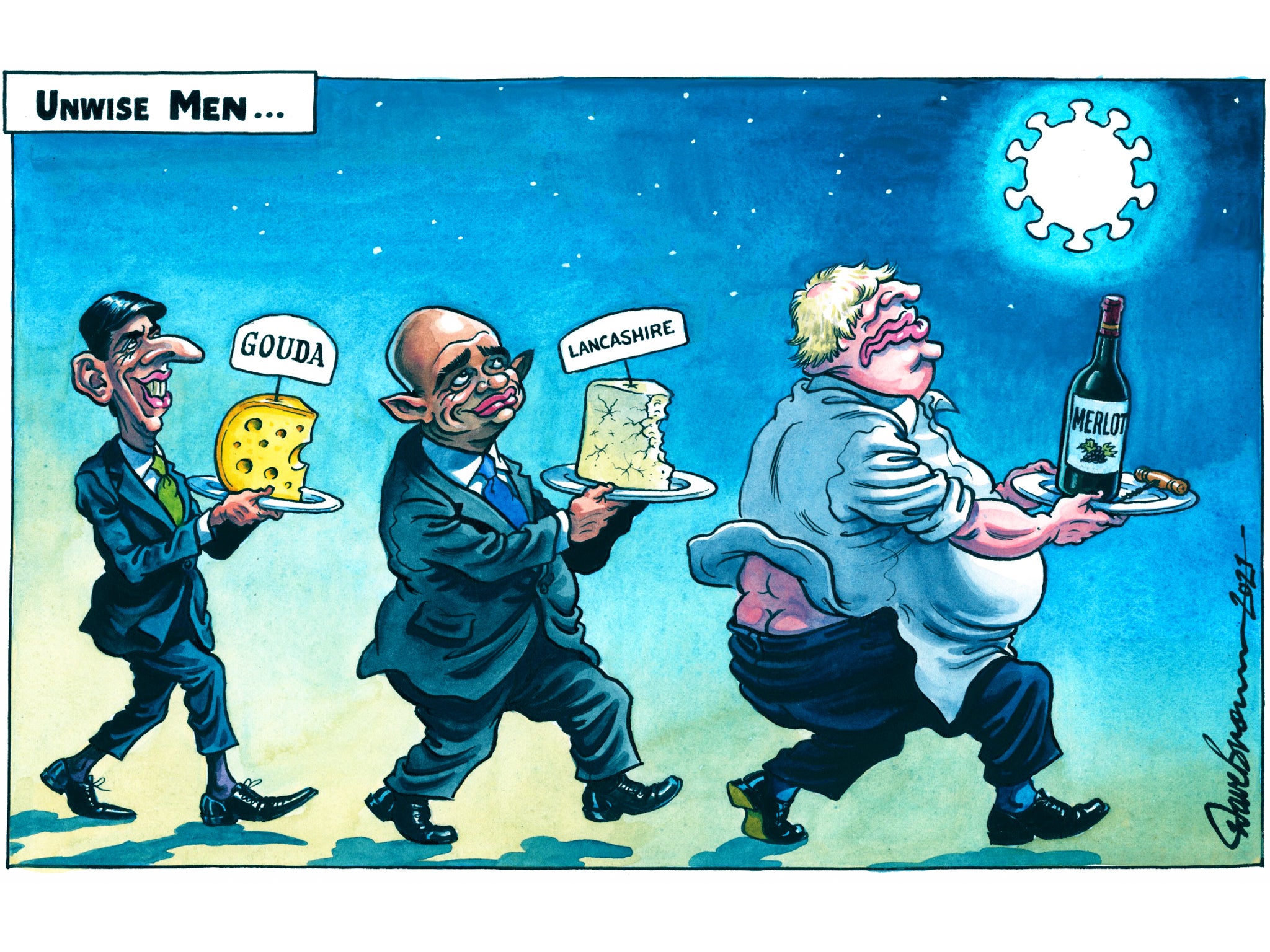The way the government communicates is corroding trust in politics and those in public life
Editorial: In recent months, the usual ambiguities, economy with the actualities, terminological inexactitudes and spin have shaded into untruths and deception

There is something very wrong with the way the government communicates with the media and the public, and it is corroding trust in politics and those in public life. It has visibly damaged the fight against Covid – notably during the Dominic Cummings scandal last year, and again now with partygate – and is also gnawing away at the foundations of a liberal democracy.
When people’s healthy scepticism about politicians turns into a cynicism directed in a generalised way against free debate, and suspicions of reliable news and the very process of elections grows, then democracy itself falls into jeopardy. The Trump experiment and the insurrection of 6 January shows how things can develop in rapid and unpredictable ways.
Politicians, like journalists, have never been as respected as, say, eye surgeons or music teachers or reliable plumbers, but there are variations and there are limits. This government seems determined to bust them.
Ever since the Brexit campaign – which had much to answer for – and the arrival of Boris Johnson as the driving force in British politics, debate has been coarsened and some truths broken.
Partygate, a trivialising, catch-all label for self-conscious law-breaking by those in power, is a perfect and egregious example. Confronted with images of what is unmistakably a drinks party in the garden of No 10 on a pleasant summer’s day, with the prime minister, the then health secretary and more than a dozen special advisers and civil servants present, the justice secretary, Dominic Raab, says it’s all OK because they’d had a “gruelling” time, and anyway it wasn’t against the rules: “It is palpably not a social gathering, because you had people in work suits.”
Palpably, in fact, a significant number (if not a majority) look, at best, to be “smart casual”. Little Wilfred Johnson, about four weeks old in this photograph, is certainly not dressed as if he was going for an interview; though the prime minister and Matt Hancock are in their work togs.
Boris Johnson, predictably, pushed his luck still further when he eventually broke cover and was asked about the party, asserting that it was a work meeting at which work was discussed. Perhaps there may have been some talk of R numbers and progress on the vaccine, but it was taking place during a drinks party, and not during a PowerPoint presentation, and that’s why the rules were broken and that’s why what the prime minister said wasn’t entirely the truth.
The problem with the conflicting official versions of what the photograph shows is that they are not only incompatible with the rules, common sense and what people can see with their bare eyes, but also with each other and internally.
A social gathering after a “gruelling” day at work (Raab) cannot also be more work (Johnson). If it is a work meeting (Johnson) then it cannot simultaneously be the prime minister and his wife and infant enjoying their private garden.
Like with the Dominic Cummings scandal last year, the prime minister and his team are expending unsustainable quantities of political and personal capital on defending the indefensible. The most embarrassing thing is that they aren’t very good at it.
There is a fine and well-understood line which politicians and their spokespeople cannot cross in their dealings with the media, and they know it. In fairness, it is not routinely crossed, because normal business could simply not take place and the public would be even more prey to the wild rumours that circulate on social media.
Yet, in recent months the usual ambiguities, economy with the actualities, terminological inexactitudes and spin have shaded into untruths and deception. It is why the questions posed to Allegra Stratton during the now-infamous mock press conference ended up with her giggling with gallows humour at the absurdity of the explanations that were going to be given to the press.
She asked, “what’s the answer?” because the actual answer was one they couldn’t possibly offer. But rather than stonewall and evade scrutiny, ministers, communications officials and others said things that later turned out not to be true. They were even evasive with their own colleagues, as our story today about the cabinet secretary, Simon Case, suggests.
To keep up to speed with all the latest opinions and comment sign up to our free weekly Voices Dispatches newsletter by clicking here
It applies equally to public statements and the private guidance offered to senior news executives on particularly sensitive stories. It is counterproductive, because the media then refuse to believe a word anyone in officialdom tells them without corroboration – and nor, more to the point, will the people pay much attention to hypocrites.
Johnson’s career has been characterised by a tendency to subterfuge, up to (and including) hiding in an industrial refrigerator during the last general election campaign. Sometimes it has served him well, but lately he has become a figure of ridicule and scorn.
Democracy relies on the honesty of our politicians, and the machinery of government – but Boris Johnson and his team are failing on both accounts. On policy, presence and personality, the prime minister and the government he leads are in terminal decline.
Join our commenting forum
Join thought-provoking conversations, follow other Independent readers and see their replies
Comments